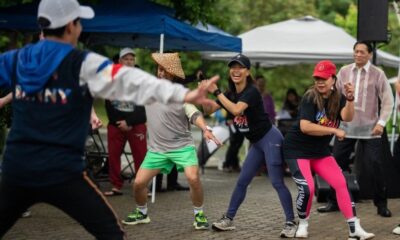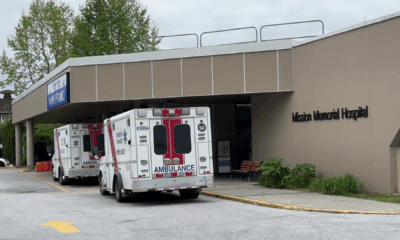Local News
Announcement coming from families of 3 Indigenous women found dead in 2022

The families of three young Indigenous women found dead in separate circumstances in Metro Vancouver in 2022 are holding a news conference Monday morning to share what they are calling “significant announcements.”
The news conference will include the family members of 20-year-old Tatyanna Harrison, 24-year-old Chelsea Poorman, and 13-year-old Noelle O’Soup, as well as Grand Chief Stewart Phillip — president of the Union of B.C. Indian Chiefs (UBCIC) — and Sue Brown, the staff lawyer for advocacy group Justice for Girls.
Advocates have criticized the police investigations of each of the three cases.
Justice for Girls says Harrison had been reported missing by her mother on May 3, 2022. The group says police had found her remains in Richmond a day before this, but it wasn’t until August 2022 that police were able to identify them. Her death had initially been reported to be related to drug toxicity, but the BC Coroners’ Service released a report in February 2023 saying she had died from sepsis. Her case is considered to be non-criminal in nature.
Poorman was visiting from Saskatchewan when she went missing in downtown Vancouver on Sept. 6, 2020, Justice for Girls says. Her remains were found on April 22, 2022, in an abandoned mansion in the city’s Shaughnessy neighbourhood. Police initially said her death was not suspicious, but the coroner said the state of her remains meant they were unable to determine the cause of death.
The advocacy group says O’Soup, also from Saskatchewan, was in a foster care group home in Port Coquitlam when she was reported missing. No amber alert was issued and child welfare authorities did not coordinate a search, it says. Her remains were found in an apartment building in Vancouver’s Downtown Eastside neighbourhood in May 2022 — a year after she had been reported missing. Her cause of death is undetermined.
The news release says Monday’s announcement will include updates on Harrison’s proposed cause of death, as well as “the fundamental role of the Coroner in British Columbia’s justice system as it relates to uprooting the ongoing and systemic assumptions, biases, and discrimination against Indigenous women and girls.”












